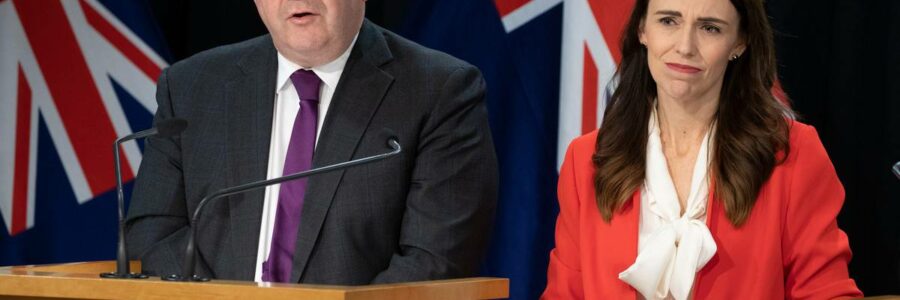
Government officials advised ministers against applying key measures of its housing plan
The Government decided against following Treasury advice, which said the length of the bright-line test should be quadrupled to 20 years.
Ministers also went ahead with their plan to lift the first-home grant cap, despite the fact that housing officials advised that this was likely to “inflate house prices”.
And, given the “extremely tight time constraints” the Treasury was under, it also recommended that the Government not go ahead with its plan to scrap interest deductibility loopholes.
But speaking to media this afternoon, Finance Minister Grant Robertson denied that this advice was ignored.
He said the Government considered the advice from the officials but had “come with what we thought was the right balance”.
On the bright-line test, he said 10 years “strikes the right balance”.
This is despite the Treasury sounding a number of alarm bells.
According to the Regulatory Impact Statement (RIS) written by Treasury, officials advised the Government to go much further with the bright-line tax.
“On balance, the Treasury’s preferred option is an extension of the bright-line period from five years to 20 years with no exemption for new builds.”
The RIS also said that a 15-year bright-line test was also “superior to the status quo,” as it would help meet some of the Government’s housing objectives – “but not to the same extent as a 20-year bright line test”.
Officials also warned Robertson that their assessment of the policy that it had been produced “under extremely tight time constraints without consultation or the benefit of robust data”.
“Accordingly there is a risk that the analysis is incomplete or may miss key interactions.”
This means officials were not able to form a view as to whether a 10-year bright-line test was better than the current five-year system.
As well as this, Treasury did not recommend providing an exemption from the extended or existing bright-line test for early investors in newly constructed homes, as the Government ultimately decided to do.
Meanwhile, officials from the Ministry of Housing and Urban Development also sounded a warning over the Government’s housing plans in 2019.
“Increasing the existing home grants is more likely to inflate house prices,” officials said in another RIS.
Despite this, the Government this morning revealed it would increase these grants from $85,000 to $95,000 for individuals and from $130,000 to $150,000 for two or more buyers.
In the House this afternoon, Prime Minister Jacinda Ardern said the reason this element of the packages was agreed to by ministers was that the Government was also making moves on the supply side.
“That advice is squarely based on the idea if you do anything that potentially increases demand without having measures to increase supply, then potentially you cause extra heat in the market.”
But Act deputy leader Brooke van Velden said this was an example of the Government “tinkering with the demand side without addressing the core problem, a lack of housing supply”.
The Government also this morning announced a $3.8b package aimed at building more housing infrastructure – Housing Minister Megan Woods said this would help build “tens of thousands” of new homes.
Source: Read Full Article